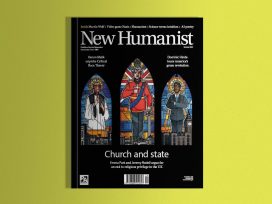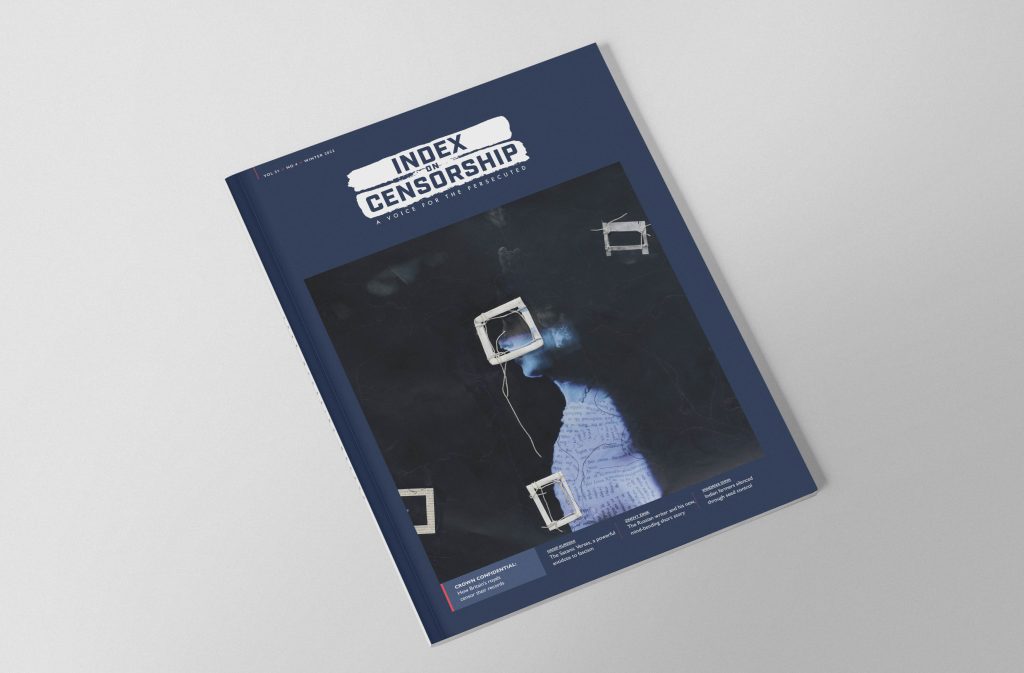
The state of the Church
New Humanist 2/2023
Turing off the tap for the Church of England: why state support for English Anglicanism belongs to the past. Also: Kenan Malik on the flaws of critical race theory.
How the British royal family seals the archives to preserve the myth of constitutional impartiality – and why the truth will out, if not in the courts then the Commonwealth.
Index on Censorship carries a timely report on how Buckingham Palace seeks to preserve the myth of the ‘neutral monarchy’ by blocking access to the royal archives. All official correspondence relating to the monarch, the heir to the throne and the second-in-line is exempted from the UK‘s Freedom of Information Act. ‘The number, and in some cases absurdity, of historic files on the Royal Family that are unavailable is staggering,’ writes Index editor Jemimah Steinfeld. ‘Many historians and journalists fail to carry out their work fully as a result.’
As Martin Bright writes, the narrative of the passive constitutional role of Elizabeth II contradicted the idea that the Queen had played an instrumental role in guiding the UK from Empire to Commonwealth. ‘Neither can be entirely true’, writes Bright. There are three particular areas of recent British history where more openness would contribute to a greater understanding: Suez, de-colonisation and Northern Ireland. And then there are other, more sensationalist episodes in the royal past, knowledge about which has been denied to biographers: notably the mysterious death of the bisexual playboy Prince George, Duke of Kent, while on active duty with the RAF in 1942.
‘There is no evidence that King Charles has a more open attitude to royal history than his mother did,’ writes Bright. ‘Indeed, he has every reason to keep the papers from the Queen’s reign that refer to his own indiscretions securely locked away in Windsor Castle. However, despite official efforts, the edifice of secrecy is crumbling. As historians of the Commonwealth further investigate the UK’s colonial past, it is unlikely the Palace will be able to maintain its tight control of the historical narrative in the way it has done in the UK itself.’

Some historians have fought back, including the biographer Andrew Lownie. In Index he tells how, when researching his book The Mountbattens: Their Lives and Loves (2019), he was denied access to the royal records by the University of Southampton, which had purchased the archive with public money in 2011. It emerged that Southampton had been subjected to a government secrecy order immediately after taking possession of the correspondence. Following an immensely costly action, the university charged with contempt of freedom of information laws and contents of the archive were released, but Lownie’s legal costs were not reimbursed.
‘One has to ask why an academic institution, presumably in favour of scholarship being made available and a believer in academic freedom, is censoring private diaries and letters ostensibly on behalf of the government, for which there is no legal justification in what seems an unquestioning relationship between a public research institution and the State.’
The historian Jennifer Hocking had a similar experience when attempting to research the Australian governor general John Kerr’s notorious dismissal of the progressive and anti-colonialist Labour prime minister Gough Whitlam in 1975. Secret letters between Kerr and Elizabeth II were embargoed past the 20-year limit. Hocking launched a legal challenge that was blocked by the Australian government, the National Archives of Australia and Buckingham Palace itself.
In May 2020, the High Court of Australia ruled in Hocking’s favour. Sure enough, the documents revealed that the Queen and the then Prince Charles (now King Charles III) had encouraged the governor general to dismiss Whitlam. ‘This flawed history would still be in place today had my legal action not succeeded,’ writes Hocking.
‘In the wake of Queen Elizabeth II’s death, Jamaicans became more aware of the absurdity of having a foreign monarch as head of state,’ writes Rosalea Hamilton, founding director of the Institute of Law and Economics in Kingston, Jamaica.
Despite momentum given by the republicanisation of Barbados in 2021 to political commitments to end the constitutional monarchy in Jamaica, the political parties have failed to offer the people their say, writes Hamilton. ‘The continuing constitutional powers of the monarch after independence in 1961 mean that the centuries old dreams of freedom and self-determination remain unfulfilled.’
Kaya Genç on Turkey’s new Centre for Combating Disinformation and its monthly ‘disinformation bulletin’, which together with the 2022 disinformation law ‘constitute a warning to anyone willing to dispute the official truths of Turkey’s Islamists’; Alessio Perrone on how Giorgia Meloni’s Fratelli d’Italia tries to control the media narrative; Rachael Jolley on why there needs to be more awareness about trauma among war reporters and journalists in other high stress situations; and Richard Sambrook on the crisis of media impartiality in the age of opinionated reporting.
Published 18 January 2023
Original in English
First published by Eurozine
Contributed by Index on Censorship © Eurozine
PDF/PRINTSubscribe to know what’s worth thinking about.

Turing off the tap for the Church of England: why state support for English Anglicanism belongs to the past. Also: Kenan Malik on the flaws of critical race theory.

Britain’s royal family seeks to preserve the myth of the ‘neutral monarchy’ by blocking access to the archives. But as historians of the Commonwealth further investigate Britain’s colonial past, Buckingham Palace will not be able to maintain its tight control of the historical narrative.